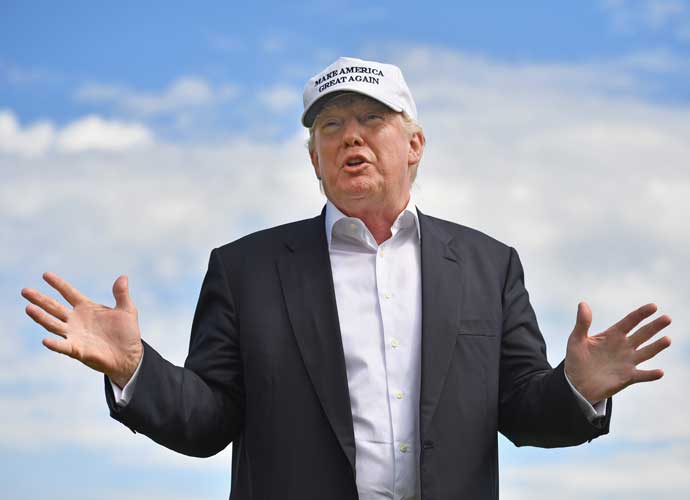Trump Calls Off Iran Retaliation Strikes, Says They Were “Disproportionate”
President Donald Trump called off a series of strikes on Iranian military targets in retaliation for a U.S. drone struck down by Iranian forces on Thursday. The eleventh-hour reversal came during the early stages of the attack, while ships and jets were already positioned to launch strikes against Iranian military targets. Reportedly, as late as 7 p.m. EST on Thursday the strikes were still approved.
The strikes came during a period of intense escalation in tensions between the U.S. and Iran, beginning with an attack on two oil tankers in the Strait of Hormuz which the U.S. says was committed by Iran, although Iran denies this.
The strikes were ordered after Iran shot down a $130 million surveillance drone which Tehran claims was flying within its territorial waters, although the U.S. disputes this. According to military sources, the unmanned drone was “operating in international airspace over the Strait of Hormuz,” when it was shot down at 7:35 p.m. EST on Wednesday, or 4:05 a.m. Thursday in Iran. According to Iranian UN Ambassador Majid Takht-Ravanchi, the drone was given repeated radio warnings, after which it was shot down.
Defense Department officials were surprised that Iran possessed the capability of accurately locating and downing a high-altitude U.S. drone, specifically designed to evade the kind of missiles used to bring it down. This supports suspicions in the Defense Department that the attack was meant as a display of force to deter the U.S. from military engagements against Iran.
Subscribe to our free weekly newsletter!
A week of political news in your in-box.
We find the news you need to know, so you don't have to.
….On Monday they shot down an unmanned drone flying in International Waters. We were cocked & loaded to retaliate last night on 3 different sights when I asked, how many will die. 150 people, sir, was the answer from a General. 10 minutes before the strike I stopped it, not….
— Donald J. Trump (@realDonaldTrump) June 21, 2019
The decision to stand down was publicized in a tweet from the president in which he claimed U.S. forces were “cocked & loaded to retaliate last night on 3 different sights” when Trump decided that the retaliation was not “proportionate to shooting down an unmanned drone.”
Congressional Democrats urged the president not to engage Iran militarily without congressional approval. House Speaker Nancy Pelosi called on Trump to resist retaliation. “This is a dangerous situation,” Pelosi said. “We are dealing with a country that is a bad actor in the region. We have no illusions about Iran in terms of their ballistic missile transfers, about who they support in the region and the rest.”
SLIDESHOW: TOP DEMOCRATS RUNNING FOR PRESIDENT IN 2020
This would have been the third time the Trump administration has engaged militarily in the Middle East. In 2017 and 2018, the US, along with other allies, launched air strikes against several military targets in Syria in retaliation for chemical attacks committed by the regime.
Get the most-revealing celebrity conversations with the uInterview podcast!









Leave a comment